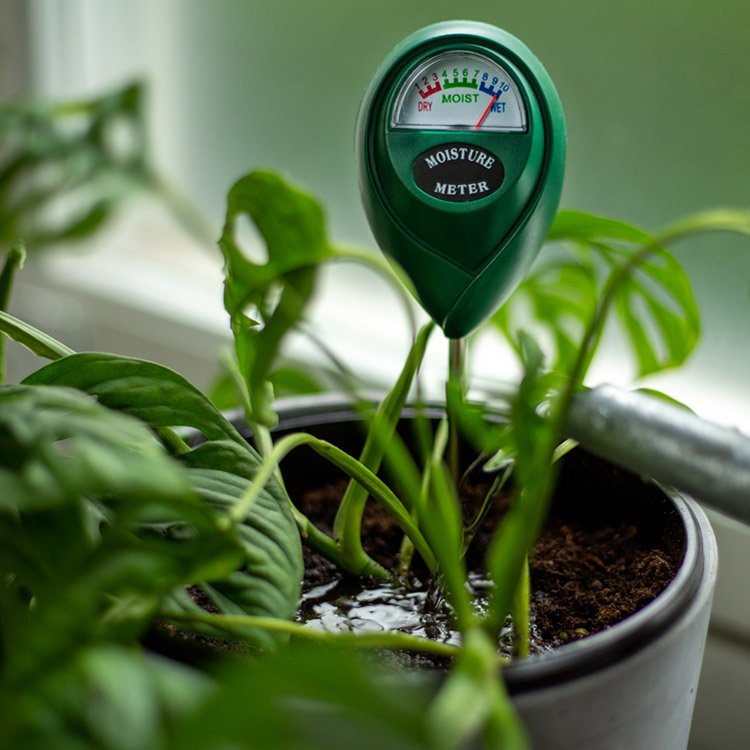The Ultimate Overview to Picking the Right Moisture Meter for Your Demands
The Ultimate Overview to Picking the Right Moisture Meter for Your Demands
Blog Article
The Ultimate Overview to Moisture Meters: A Comprehensive Review and Exactly How They Can Save You Money
In the realm of building upkeep, construction, and various sectors, the significance of accurately determining moisture levels can not be overstated. Moisture meters serve as vital tools in identifying and keeping track of moisture material in products, aiding in preventing expensive damages and guaranteeing the high quality of items. Comprehending the nuances of different kinds of dampness meters, their applications, and the prospective cost-saving advantages they supply can be a game-changer for services and professionals alike. Discovering just how these devices can not only simplify processes but additionally add to monetary cost savings is a journey worth starting.
Kinds of Moisture Meters
One common type is the pin-type wetness meter, which determines the electric resistance in between 2 pins put into a material. Pinless moisture meters, on the various other hand, use electromagnetic sensing unit plates to scan a bigger location without triggering damage to the material's surface.
Furthermore, there are additionally specialty dampness meters made for particular materials like hay, grain, or dirt. These meters give precise moisture readings tailored to the one-of-a-kind residential or commercial properties of the material being evaluated. Infrared dampness meters determine the thermal buildings of a product to establish its wetness web content non-invasively, making them helpful for applications where pin or pinless meters may not appropriate. Understanding the various sorts of dampness meters available can help markets pick one of the most appropriate tool for their details moisture measurement needs.

Benefits of Utilizing Moisture Meters

Furthermore, using wetness meters can lead to boosted power efficiency. In farming settings, moisture meters play a vital role in optimizing plant returns by making it possible for farmers to keep an eye on soil moisture levels and make informed watering choices.
Exactly How to Pick the Right Moisture Meter
Selecting the appropriate moisture meter entails taking into consideration vital factors such as product compatibility, dimension range, and calibration precision. When picking a dampness meter, it's vital to make certain that the meter appropriates for the details material you will be testing. Various materials have differing electric properties that can affect wetness analyses, so selecting a meter designed for your product is essential for accurate outcomes. Additionally, consider the dimension series of the dampness meter. Guarantee that the meter can discover wetness levels within the variety required for your applications. Calibration precision is one more vital factor to keep in mind (Moisture Meter). Choose a dampness meter with reliable calibration to guarantee accurate and consistent analyses. Some meters might call for periodic calibration changes, so understanding the calibration procedure is crucial. By carefully assessing these variables, you can select a wetness meter that meets your requirements and provides accurate moisture dimensions for your tasks.
Proper Methods for Moisture Meter Usage
To make certain exact moisture readings and optimize the effectiveness of a dampness meter, employing correct methods is important. When making use of a pin-type moisture meter, place the pins or probes into the product being evaluated till they make full call. By following these correct techniques, users can depend on their dampness meter to provide reliable wetness degrees, aiding in protecting against expensive damages or guaranteeing high quality in numerous applications.

Price Financial Savings Through Moisture Meter Applications
Just how can the strategic use of wetness meters lead to significant price savings across different sectors? In the agriculture industry, moisture meters aid in Click Here establishing the ideal time for harvesting crops, avoiding over-drying or excess moisture that can impact the final item's high quality.

Furthermore, in the food processing market, moisture meters are crucial for monitoring item quality and making certain conformity with safety and security guidelines. By precisely measuring wetness material in foodstuff, manufacturers can avoid wasting, keep quality, and minimize waste, resulting in significant expense savings. Overall, the tactical application of wetness meters is an important investment that can cause considerable price decreases and improved efficiency across various markets.
Final Thought
In verdict, moisture meters are important devices for discovering and measuring dampness levels in various products. By making use of the right wetness meter and adhering to appropriate methods, users can efficiently protect against important source expensive problems created by excess moisture.
Wetness meters offer as vital tools in finding and monitoring moisture content in materials, helping in avoiding costly problems and ensuring the top quality of products. Infrared moisture meters determine the thermal properties of a material to determine its dampness web content non-invasively, making them useful for applications where pin or pinless meters may not be suitable.Dampness meters provide invaluable advantages in properly keeping an eye on and assessing dampness levels in click resources diverse materials and environments. In agricultural settings, wetness meters play a vital duty in enhancing plant returns by making it possible for farmers to keep track of dirt wetness degrees and make notified irrigation decisions.In final thought, wetness meters are beneficial devices for determining and identifying dampness degrees in different products.
Report this page